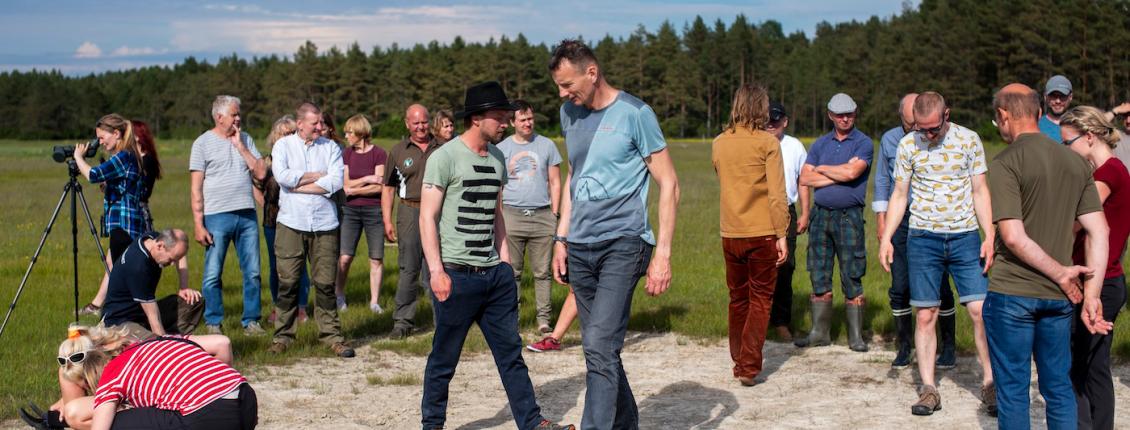June 2, 2023
Kaidi Tingas
Starting this summer, a result-based support scheme for floodplain and coastal meadows will be tested
This spring the Environmental Board received a total of 23 applications for the implementation of the result-based support for floodplain and coastal meadows. In turn, 12 land managers were selected, with whom the criteria for result-based support were negotiated, and future challenges and possible solutions were discussed on the basis of each area. After that, contracts were signed for the next 5 years with a total of 10 applicants to cover 10,500 ha.
For the result-based support, experts define the meadow criteria and the methodology that the land managers can use to assess the quality of their meadows and take measures accordingly. For example, if necessary, mowing and grazing can be started earlier than the general conditions for the maintenance of the semi-natural grassland provide.
‘Many land managers would do things a bit differently, but the regulation doesn't allow it,’ says Gunnar Sein, Manager of the Environmental Board's Land Maintenance Bureau. ‘We want to test whether activities outside the current framework produce results. For example, in Southern Europe, where result-based support has been used for longer, the results are visible. Whether they will bear fruit for us remains to be seen in the next five years!’
Earlier mowing can, for example, alleviate the problem of sedgelands expanding in floodplain meadows. By the time the spring floods recede in June, the sedges are already overgrown and animals no longer want to eat them. The best way to control sedgelands would be to graze them, then mow before they bloom, and then graze again. Experiments will also be carried out with hay bales spread on the sedgelands in August, in the hope that seeds from the species-rich hay bales will also find their way into the sedgelands and help to diversify the areas.
As studies show that grazing can disturb the mating ritual of the great snipe, a species of European significance, fencing of the ritual areas is being tested in some areas.
Piloting the performance-based support will make it possible to carry out the above as well as other experiments outside the ‘normal management box’. The activities are monitored by researchers at the University of Tartu. If the result-based support proves successful, it will be applied more widely in the next EU agricultural period.
